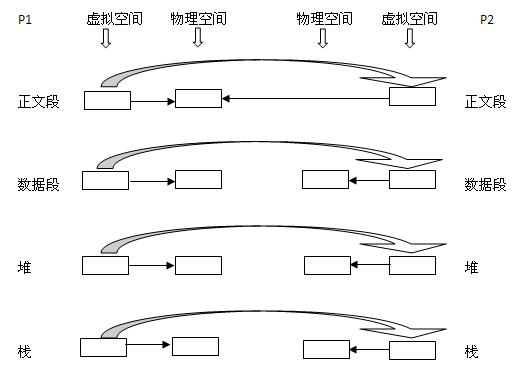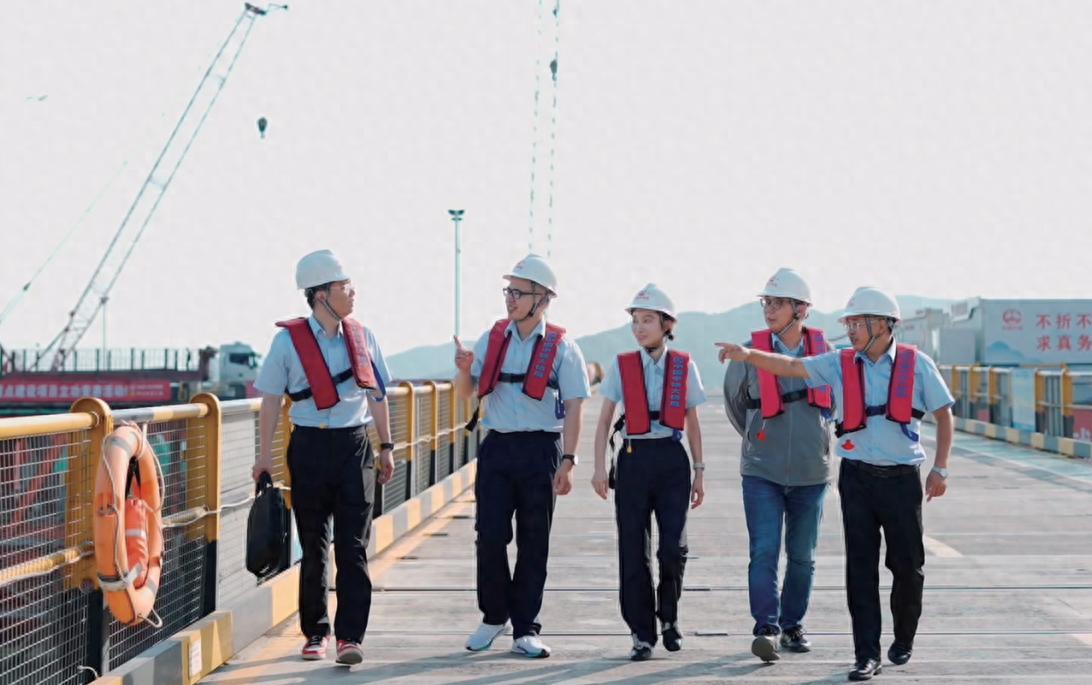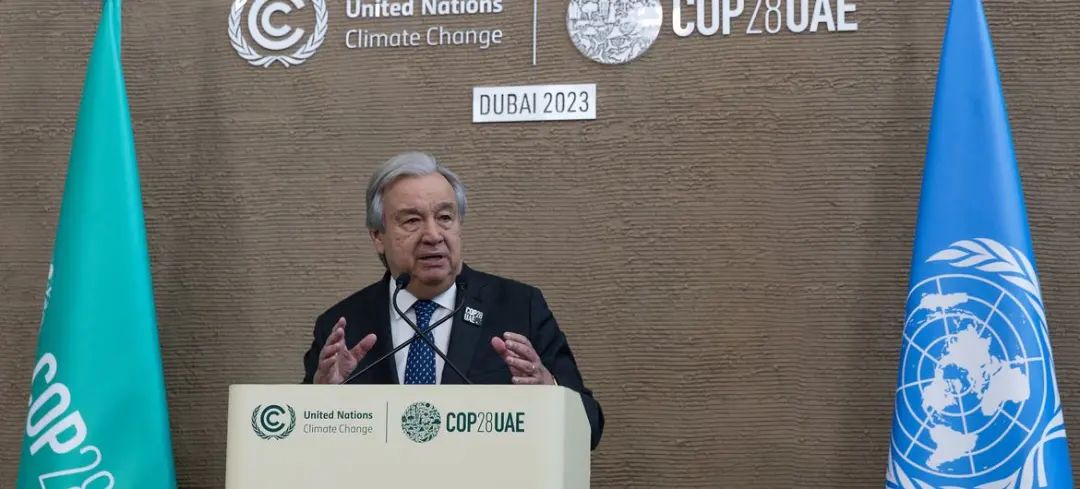
© UNFCCC /Kiara Worth | 古特雷斯在第28届联合国气候变化大会会场向记者发表讲话
第28届联合国气候变化大会已经进入最后的冲刺阶段。联合国秘书长古特雷斯今天呼吁各国就逐步淘汰化石燃料达成协议,并告诉谈判代表们“现在是展现最大雄心和最大灵活性的时刻”。
在本届大会进入“48小时倒计时”之际,古特雷斯向各国政府谈判代表传达了一个明确信息:我们必须以雄心勃勃的成果结束本届气候大会,展现出果断的行动和可信的计划,从而将1.5℃升温目标保持在可实现的范围内,保护那些处于气候危机前线的人们。
古特雷斯秘书长媒体讲话全文
Good morning.
We are in a race against time.
As I said at the opening of COP28, our planet is minutes to midnight for the 1.5 degree limit.
And the clock keeps ticking.
COP28 is scheduled to wrap up tomorrow, but there are still large gaps that need to be bridged.
Now is the time for maximum ambition and maximum flexibility.
Ministers and negotiators must move beyond arbitrary red lines, entrenched positions and blocking tactics.
It is time to go into overdrive to negotiate in good faith and rise to the challenge set by COP President Dr. Sultan Ahmed Al Jaber.
It is time to seek compromise for solutions – without compromising on the science or compromising on the need for the highest ambition.
In our fractured and divided world, COP28 can show that multilateralism remains our best hope to tackle global challenges.
Specifically, I ask Parties to ensure maximum ambition on two fronts:
First, ambition on reducing greenhouse gas emissions. Second, ambition on delivering climate justice.
The Global Stocktake must offer a clear plan for a tripling of renewables, a doubling of energy efficiency and a single-minded focus on tackling the root cause of the climate crisis – fossil fuel
production and consumption.
Of course, transformation won’t happen overnight.
Decarbonization will create millions of decent new jobs, but governments must also ensure support, training and social protection for those who may be negatively impacted.
At the same time, the needs of developing countries highly dependent on the production of fossil fuels must also be addressed.
But it is essential that the Global Stocktake recognizes the need to phase out all fossil fuels on a timeframe consistent with the 1.5 degree limit — and to accelerate a just, equitable and orderly energy transition for all.
A transition that takes into account the principle of common but differentiated responsibilities and respective capabilities, in light of national circumstances – not to reduce ambition but to combine ambition and equity.
That is the reason I proposed the Climate Solidarity Pact – in which big emitters make extra efforts to cut emissions and wealthier countries support emerging economies to be able to do so.
The timelines and targets might be different for countries at different levels of development, but they all must be consistent with achieving global net zero by 2050 and preserving the 1.5 degree goal.
Second, it is time for more ambition on climate justice.
COP28 began with two encouraging steps: agreement to operationalize the Loss and Damage Fund, and replenishment of the Green Climate Fund.
It is a start, but much more is needed.
Many developing countries are drowning in debt, have no fiscal space, and are churning in climate chaos.
We need all commitments made by developed countries on finance and adaptation to be met — fully and transparently.
We need increased capital and reform of the business model of multilateral development banks to massively increase direct support – and to leverage far more private finance at reasonable costs for developing countries climate action efforts.
And we need far more adaptation ambition.
COP28 must send clear signals that governments have grasped the scale of the adaptation challenge, and that it is a priority not just for developing countries, but the entire world.
I welcome the emerging consensus for a new framework on adaptation with a set of measurable targets to propel action.
But a framework without the means of implementation is like a car without wheels.
The doubling of adaptation finance to $40 billion dollars by 2025 must be an initial step towards allocating at least half of all climate finance towards adaptation.
Looking ahead, the next two years are vital.
First, to establish a new and meaningful global climate finance goal beyond 2025, reflecting the scale and urgency of the climate challenge.
Second, for governments to prepare and present new national climate action plans – or Nationally Determined Contributions – that are economy-wide, cover all greenhouse gases and are fully aligned with the 1.5 degree temperature limit.
Governments must leave Dubai with a clear understanding of what is required between now and [COP30] in Brazil.
So as we approach the finish line for COP28, my main message is clear:
We must conclude COP28 with an ambitious outcome that demonstrates decisive action and a credible plan to keep 1.5 alive and protect those on the frontlines of the climate crisis.
We can’t keep kicking the can down the road. We are out of road – and almost out of time.
Thank you.
Question:Justin Rowlatt from the BBC here. Mr. Guterres, if we don’t get a commitment to phase out fossil fuels in this deal, does that mean this COP conference has been a failure?
Answer:Well, the COP covers many aspects and it depends on the global balance. But a central aspect, in my opinion, of the success of the COP will be for the COP to reach a consensus on the need to phase out fossil fuels in line with a time framework, that is in line with the 1.5 degree limit. That doesn’t mean that all countries must phase out fossil fuels at the same time. The principle of common but differentiated responsibilities applies. But it means that globally the phase out of fossil fuels needs to be compatible with net zero in 2050 and with the limit of 1.5 degrees in temperature rise.
Question:Sophie Mckoena from the SABC, South African Broadcasting Corporation. SG, the issue of the pact that you spoke about, it was difficult to get it during covid-19. Do you think this time around what you are calling for the developed countries will respond positively?
Answer:Let’s be clear. One of the things that is essential is that all commitments made by developed countries need to be transparently implemented. But we will not solve the problems of equity in relation to climate only with climate finance. That is the reason why I’ve been advocating for reforms in the international financial architecture, for effective debt relief mechanisms and for, as I mentioned today, the increase of capital and the change in business models of international multilateral banks, in order to make sure that much more resources are available for developing countries, in order not only to meet their objectives in climate action – mitigation and adaptation – s but also to address the dramatic financial situation in which many of them are.
We cannot separate things. Of course, we cannot expect the COP to solve all the financial problems and developing countries in the world, but it’s important that the COP gives a strong signal that those problems beyond the strict problems of climate finance, that those problems need to be addressed. Thank you very much.
点击展开
时不我待
参加迪拜联合国气候变化大会的各国代表们正在加紧进行谈判,以就关键议程项目达成协议,包括未来化石燃料的使用、增加可再生能源、建设适应气候变化的能力以及确保对脆弱国家的财政支持。
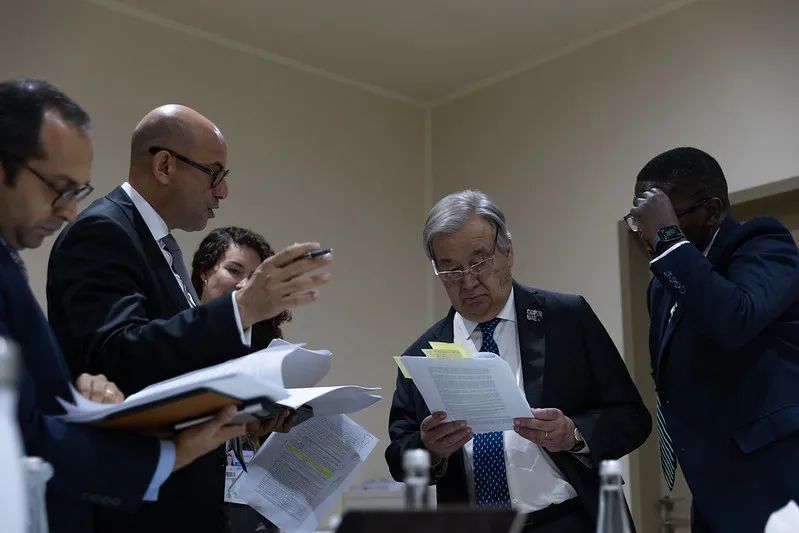
© UNFCCC | COP28幕后
古特雷斯在接受记者采访时警告称,人类正在与时间赛跑,因为1.5℃这一危险的临界点已近在咫尺,我们的地球很可能错失实现《巴黎协定》1.5℃温控目标的机会,而时间正在一分一秒地流逝。
他表示,虽然本届气候大会即将迎来闭幕,但仍然存在巨大的差距需要弥合。现在是展现最大雄心和最大灵活性的时候了。各国部长和谈判代表必须跨越固守的立场,并放弃阻挠的策略。
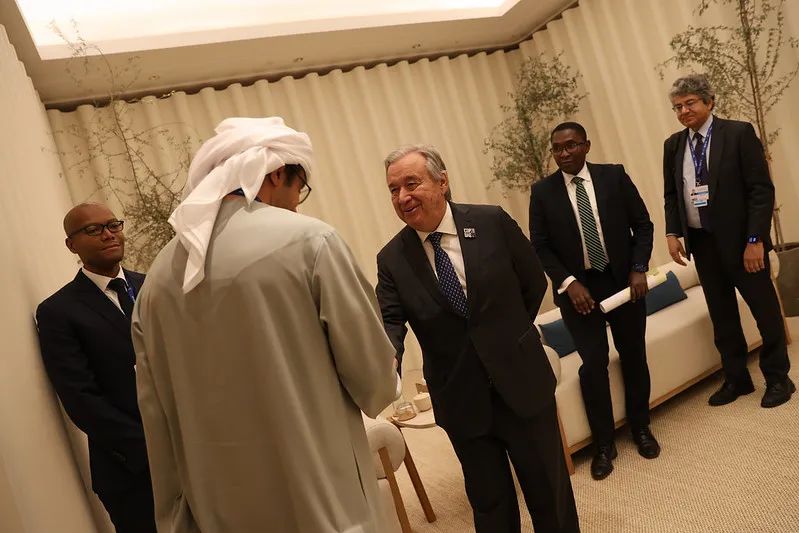
© UNFCCC | COP28双边会议
古特雷斯敦促各国全力以赴、真诚谈判、迎接挑战,并警告称任何为解决方案而做出的妥协都不能以牺牲科学或最大雄心为代价。

全球盘点
继具有里程碑意义的巴黎气候大会之后,本次第28届气候变化大会首次对各国实现《巴黎协定》所定目标方面取得的进展进行评估。
全球盘点仍在评估之中,将为各国应在2025年提交的下一轮国家自主贡献方案提供参考。国家自主贡献是各国提出的旨在减少排放、适应气候影响的气候行动计划。
古特雷斯呼吁各国加大努力,确保在两个方面实现最大雄心,即减少温室气体排放和实现气候正义。他强调,全球盘点必须认识到“有必要根据1.5℃温控目标的时间框架内逐步淘汰所有化石燃料,并为所有人加快实现公正、公平和有序的能源转型”。
能源转型
秘书长在迪拜世博城接受采访时,重点谈到了在能源转型方面提高雄心和加强气候行动的关键行动要点:
将可再生能源产能增加两倍,能源效率提高一倍,以及逐步淘汰化石燃料;
为可能受到负面影响的人提供支持、培训和社会保护;
考虑依赖化石燃料生产的发展中国家的需求。
他表示,不同发展水平的国家可能会有不同的时间表和目标,但都应符合“到2050年实现全球净零排放和将1.5℃的目标保持在可实现的范围内”。
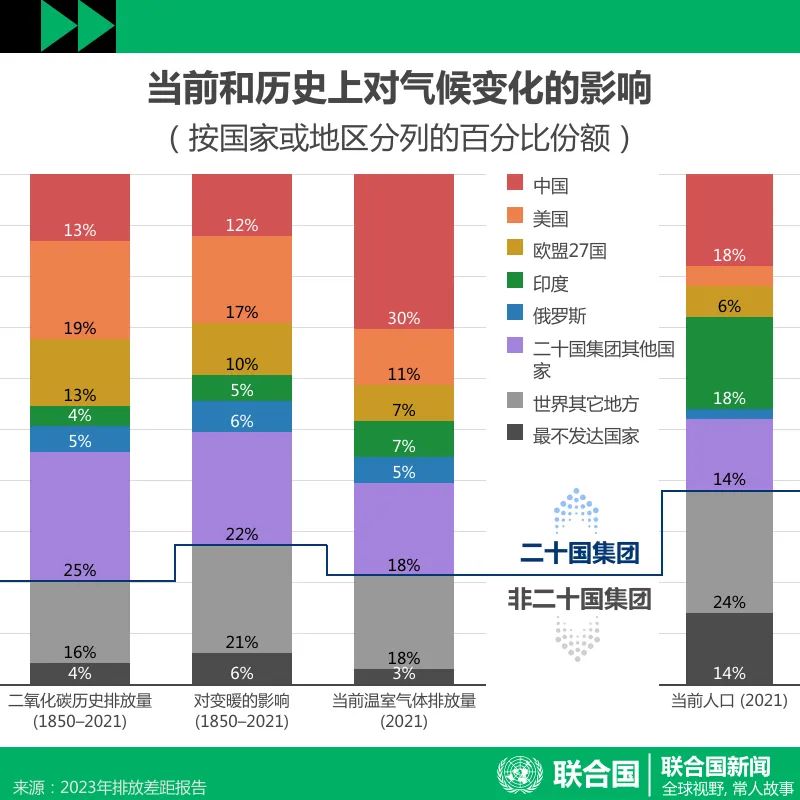
气候正义
古特雷斯回顾说,第28届气候变化大会一开始就达成了两个令人鼓舞的成果:一是同意将损失和损害基金投入运作,以帮助脆弱国家应对气候变化的影响;二是为绿色气候基金增加资金。他说:“这是一个好的起点,但还需要采取更多行动。”
考虑到受债务困扰的发展中国家所面临的挑战,古特雷斯敦促发达国家履行其在气候融资和适应方面做出的所有承诺,此外,全球在气候适应方面还需更具雄心。
古特雷斯秘书长强调,第28届联合国气候变化大会必须发出明确的信号,表明各国政府已经认识到气候适应挑战的规模,而且这不仅是发展中国家的优先事项,也是全世界的优先事项。
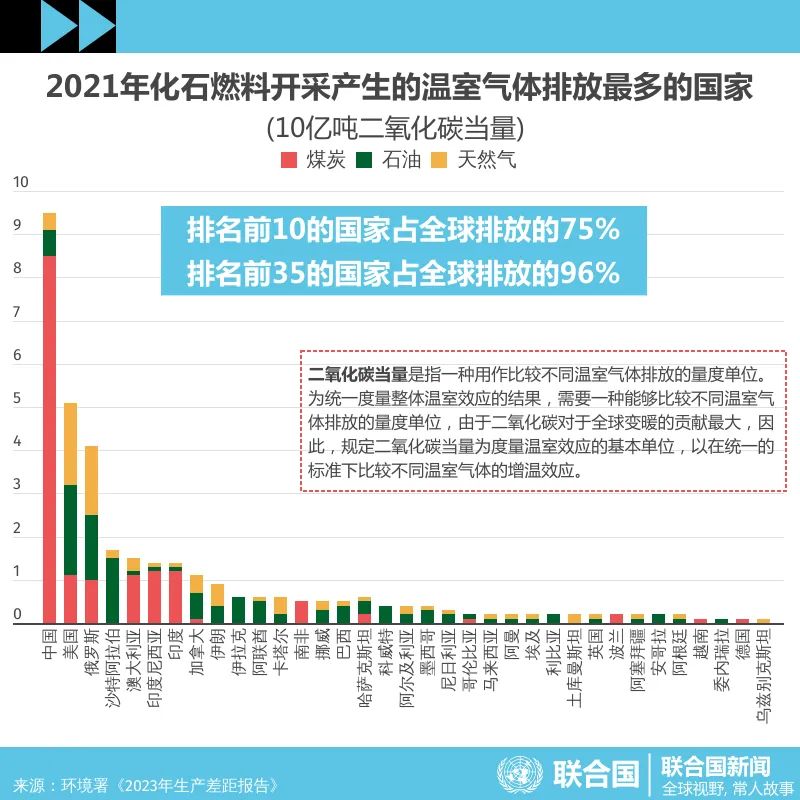
新的气候适应框架
目前,各国正逐渐就气候适应的新框架达成共识,古特雷斯对此表示欢迎,但同时强调必须注重实施。

展望未来,古特雷斯强调未来两年至关重要。首先,需要制定2025年后新的全球气候融资目标。其次,各国政府应制定并提出新的、与1.5℃温控目标一致的国家气候行动计划,即国家自主贡献。
他敦促谈判代表认识到气候挑战的规模和紧迫性,“我们不能再拖延下去,我们已经无路可走,时间也所剩无几”。
《联合国气候变化框架公约》秘书处
执行秘书斯蒂尔
《联合国气候变化框架公约》秘书处执行秘书斯蒂尔(Simon Stiell)在接受记者采访时表示,关于成果文件的谈判有机会开启新的篇章,一个造福人类和地球的篇章。
他强调,资金是在所有方面扩大气候行动的基石。迪拜的谈判现在可以归结为两个问题:我们在减缓气候变化方面展现多少雄心;以及我们是否愿意提供适当的支持手段来实现这一转变。
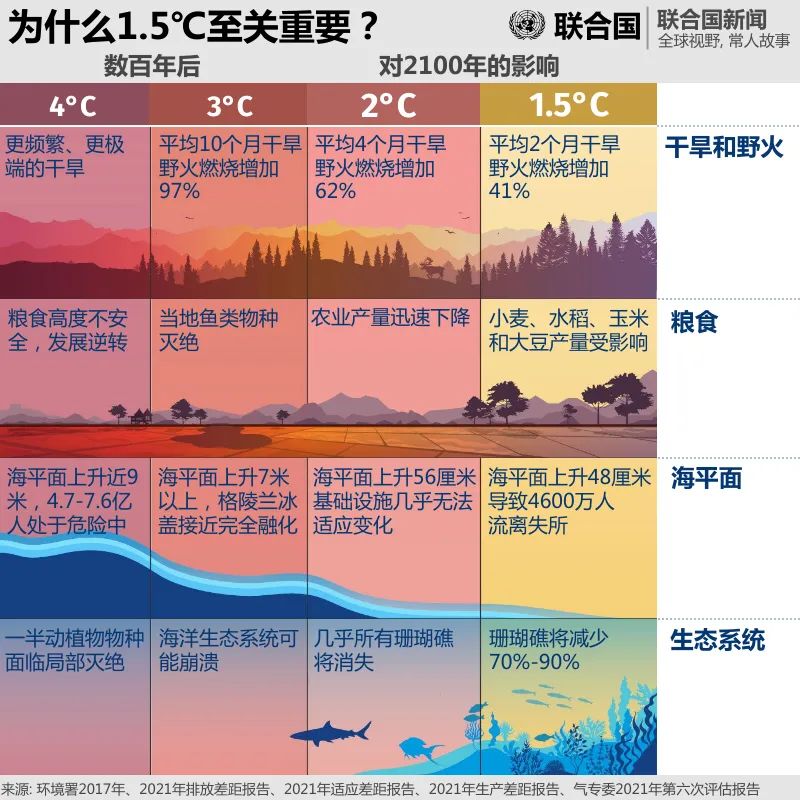
斯蒂尔表示,两者都有可能实现最具雄心的目标,但如果我们弱化其中一项,就会削弱我们实现所有目标的能力。要达成有意义的协议,必须消除本届大会中出现的许多不必要的战术阻碍,并拒绝“渐进主义”。
他提醒各谈判代表,全世界都在密切关注本届会议,“我们无处可躲”。“我赢你输”是集体失败。归根结底,这关乎80亿人的安全。

© UNFCCC | COP28会场
第28届联合国气候变化大会主席
贾比尔
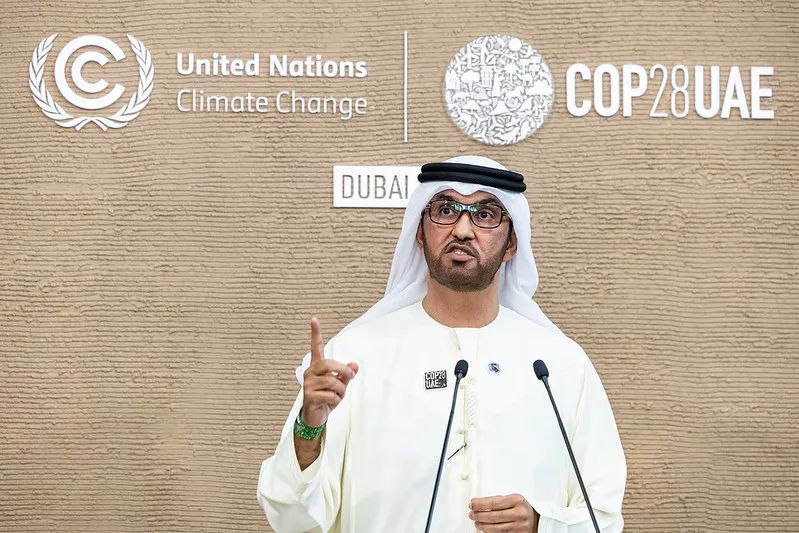
© UNFCCC | 第28届联合国气候变化大会主席贾比尔
在闭幕全体会议的第一次正式会议上,第28届联合国气候变化大会主席贾比尔(Sultan Al Jaber)表示,讨论最终文件的时间即将结束,各国必须就文本达成一致。没有时间犹豫了。现在是做出决定的时候了。
贾比尔指出,会议成果必须尊重科学,将全球变暖控制在1.5℃的目标保持在可实现的范围内。
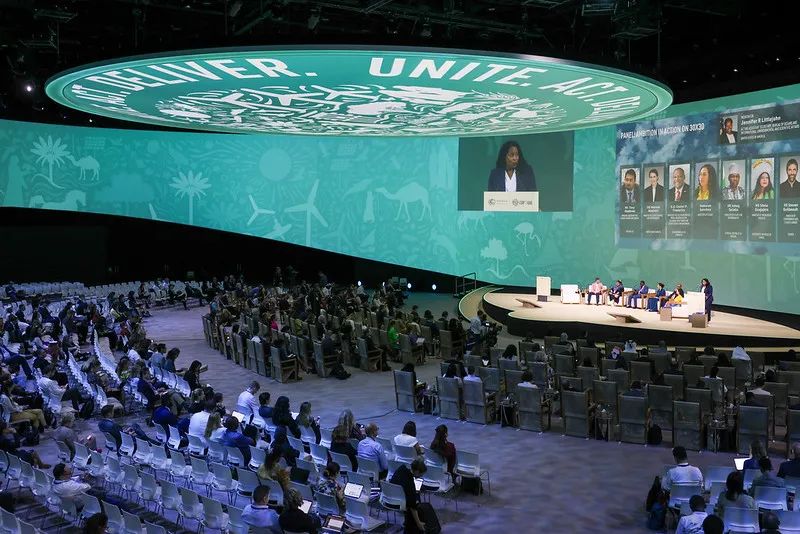
© UNFCCC | COP28会场
他表示,代表们在大会第一天就损失和损害基金达成突破性协议,现在他们有机会再创历史,向世界发出多边主义确实有效的信号。随着本届大会临近终点,与会代表需要展现更大的灵活性,在包括化石燃料在内的所有项目上都能展现最高的雄心壮志。
COP28会场热点回顾

© COP28/Christophe Viseux | 第28届气候变化大会期间召开了有关“农民和传统生产者”的会议
随着在迪拜举行的第28届联合国气候变化大会进入最后阶段,联合国粮农组织日前宣布启动了一项突破性计划,旨在到2050年将世界农业和粮食系统从一个净排放部门转变为碳汇。
粮农组织确定了十个优先领域,包括牲畜、土壤和水、农作物、饮食和渔业,在这些领域遵循路线图可以帮助推动世界更接近实现17项可持续发展目标中的第二个目标——“零饥饿”。
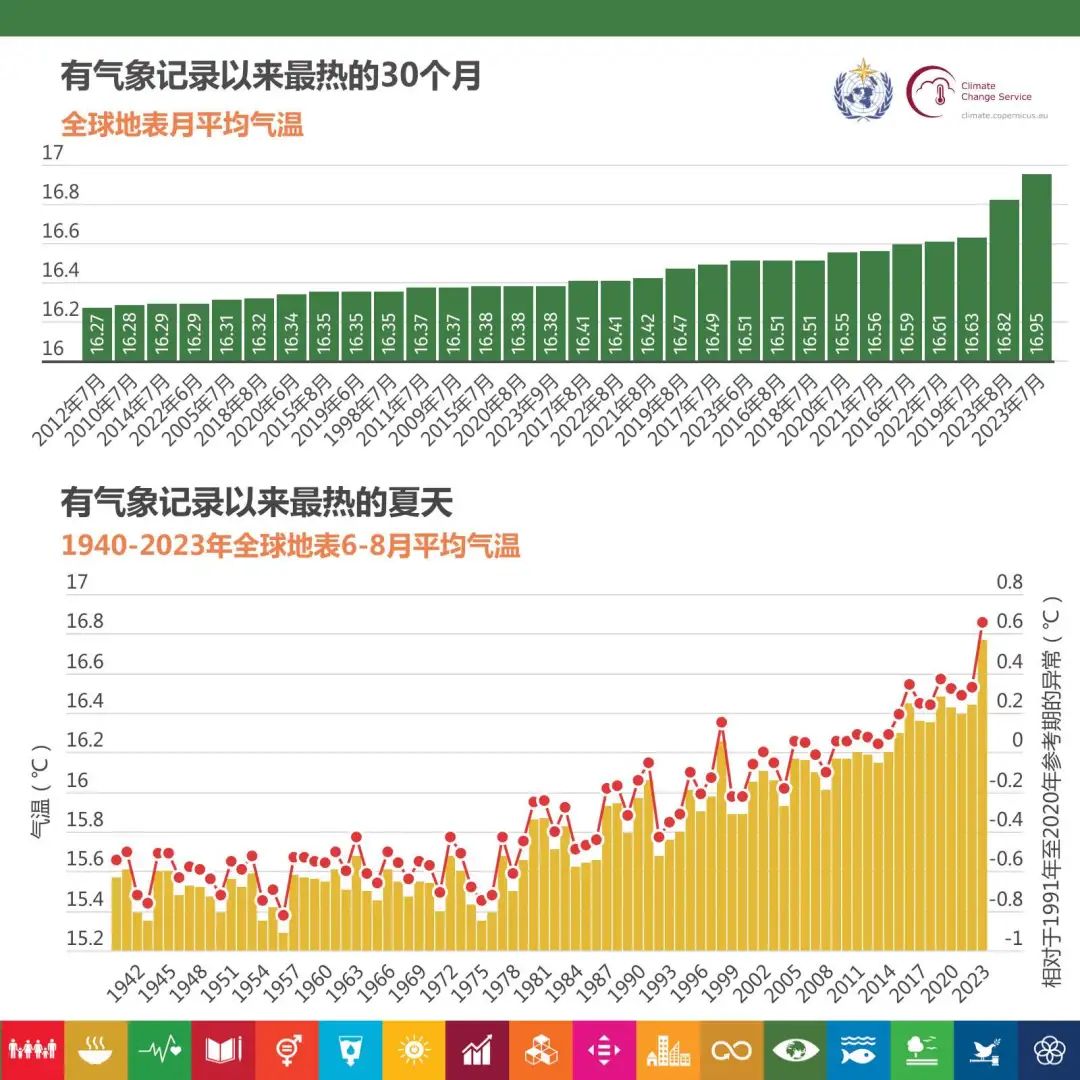
限 时 特 惠: 本站每日持续更新海量各大内部创业教程,一年会员只需98元,全站资源免费下载 点击查看详情
站 长 微 信: lzxmw777





